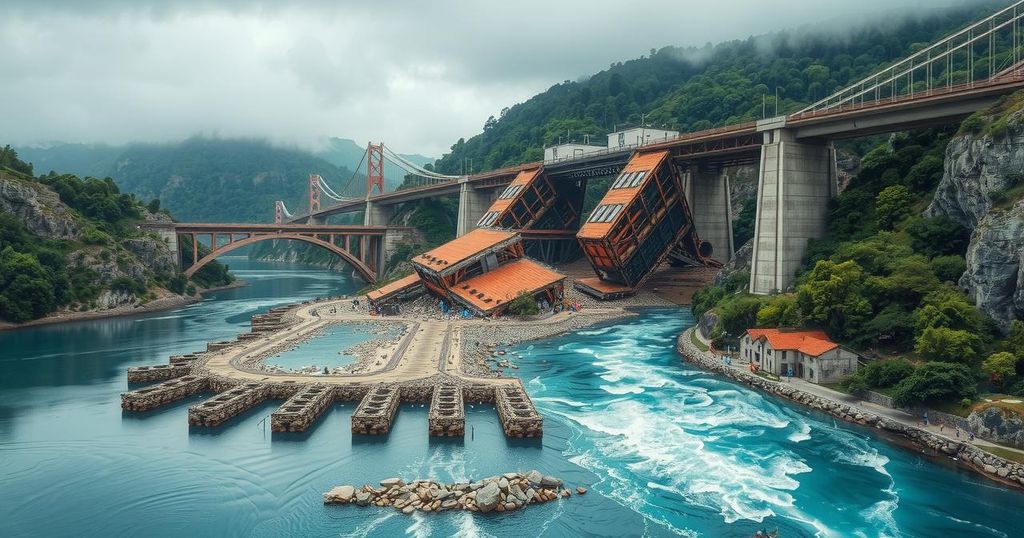Collapse of Brazil’s Juscelino Kubitschek Bridge Raises Safety Concerns

The Juscelino Kubitschek de Oliveira Bridge in Brazil collapsed, resulting in one confirmed death and another rescue. The incident involved multiple vehicles falling into a deep river, prompting immediate rescue operations. Structural concerns regarding the bridge had been previously noted, emphasizing the need for urgent infrastructure repairs.
A tragic incident occurred in Brazil when the Juscelino Kubitschek de Oliveira Bridge collapsed, resulting in the death of one individual and the rescue of another. The bridge, which was inaugurated in 1960 and is a vital connection between Brasília and Belém via the BR-226 highway, has been under scrutiny due to reported structural issues, particularly highlighted by city councilman Elias Junior. His video documenting a significant crack in the bridge was captured just before its collapse, showcasing the urgency for infrastructure repairs.
Preliminary investigations revealed that at least 11 people were involved in the accident, which included two trucks, a car, and a motorcycle that plunged into the river, approximately 164 feet deep. As rescue operations progressed throughout the day, divers ceased their search efforts upon discovering that one submerged tanker was leaking sulfuric acid, leading to significant environmental concerns.
The impact of this accident underlines the pressing need to address infrastructure integrity in Brazil, highlighting potential risks to both human safety and environmental health related to deteriorating public structures. The upcoming United Nations Climate Change Conference to be held in Belém next year adds another layer of significance to the situation, as it draws attention to infrastructure safety amid broader environmental discussions.
The failure of the Juscelino Kubitschek de Oliveira Bridge is a stark reminder of the challenges facing Brazil’s infrastructure. Built over sixty years ago with reinforced concrete, the bridge has been subjected to increasing loads from heavy trucks, which exceeds its designed capacity. The incident emphasizes the necessity for ongoing maintenance and upgrades to prevent similar catastrophes in the future. With the bridge being part of a critical transportation route connecting major cities, its collapse not only poses safety risks but also hampers regional transportation and economic activities.
In summary, the collapse of the Juscelino Kubitschek de Oliveira Bridge has resulted in loss of life and raised alarms about the state of Brazil’s infrastructure. The immediate response by emergency services highlights the dangers posed by aging public works, particularly in the face of increased traffic loads. This incident necessitates a thorough review and rectification of infrastructure policies to safeguard public welfare and the environment.
Original Source: m.economictimes.com







